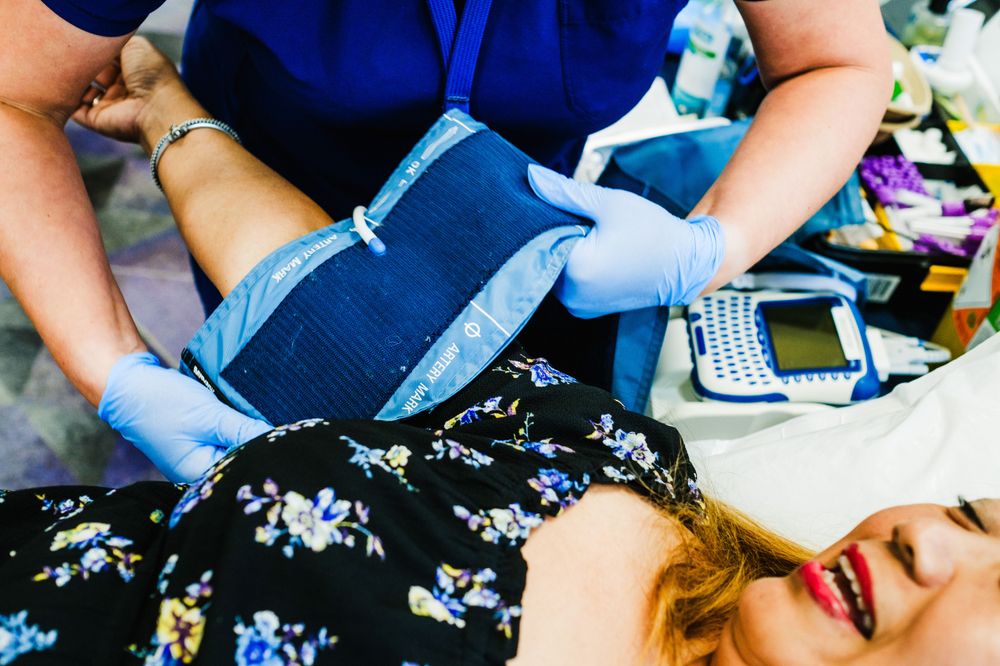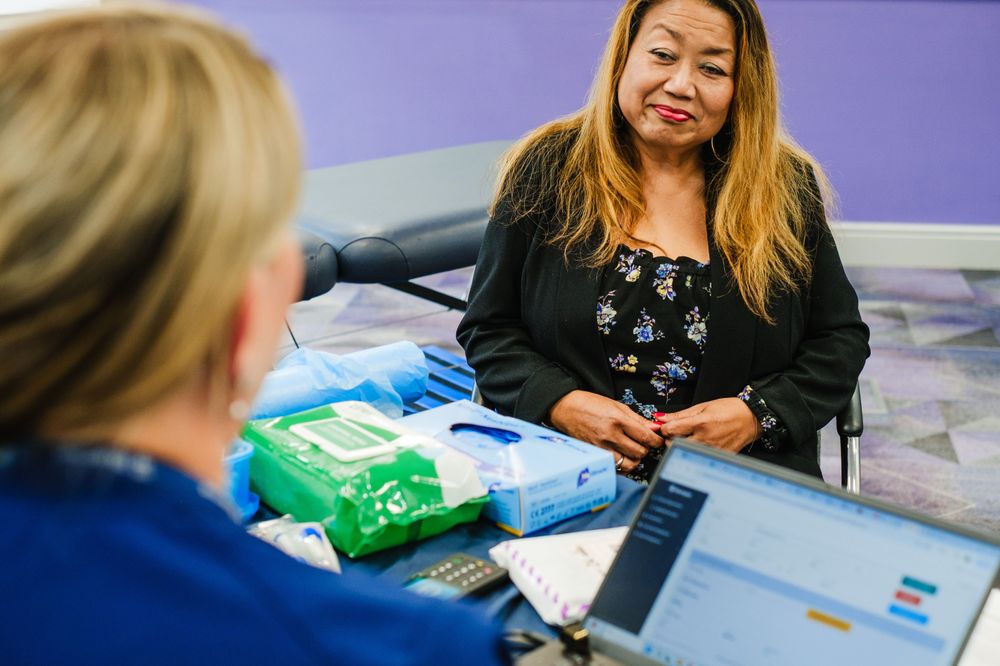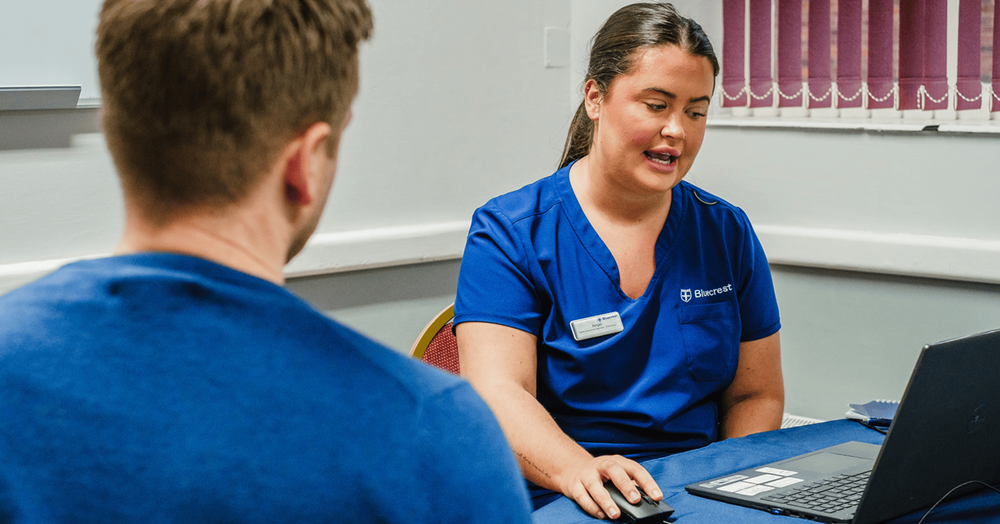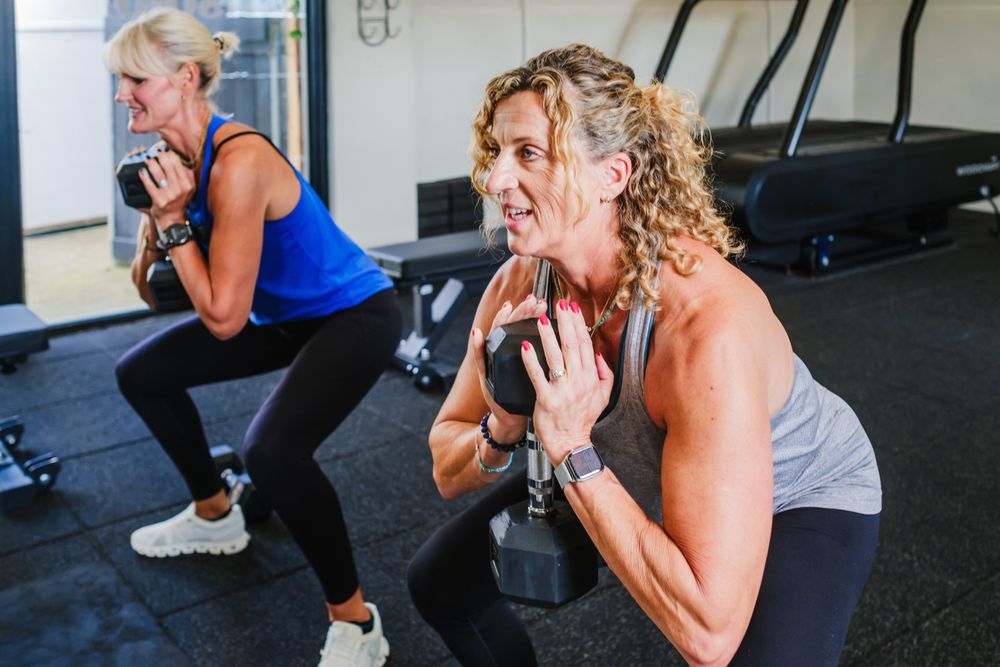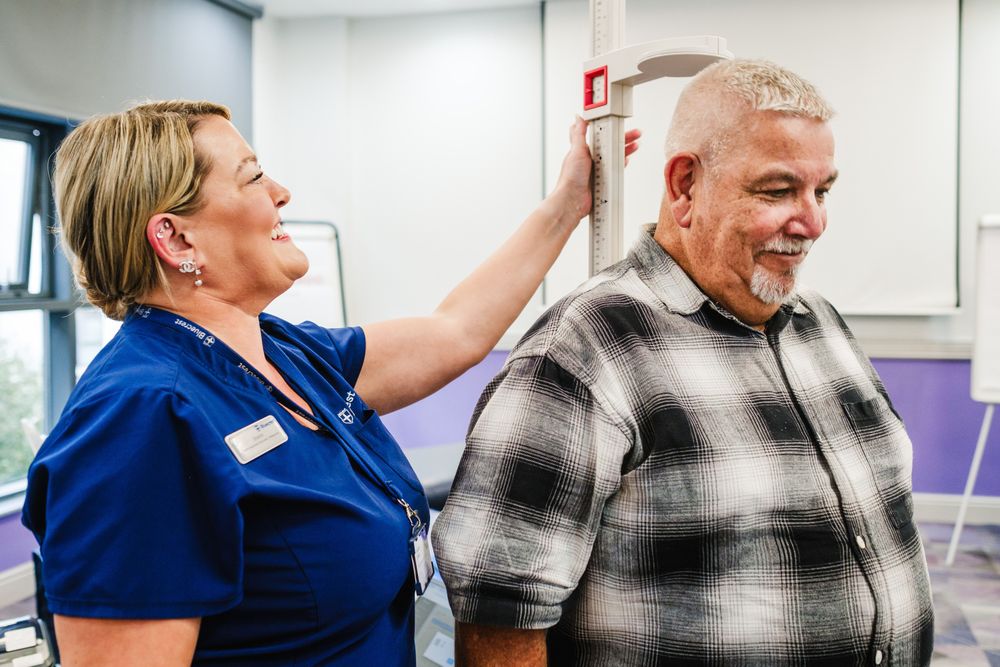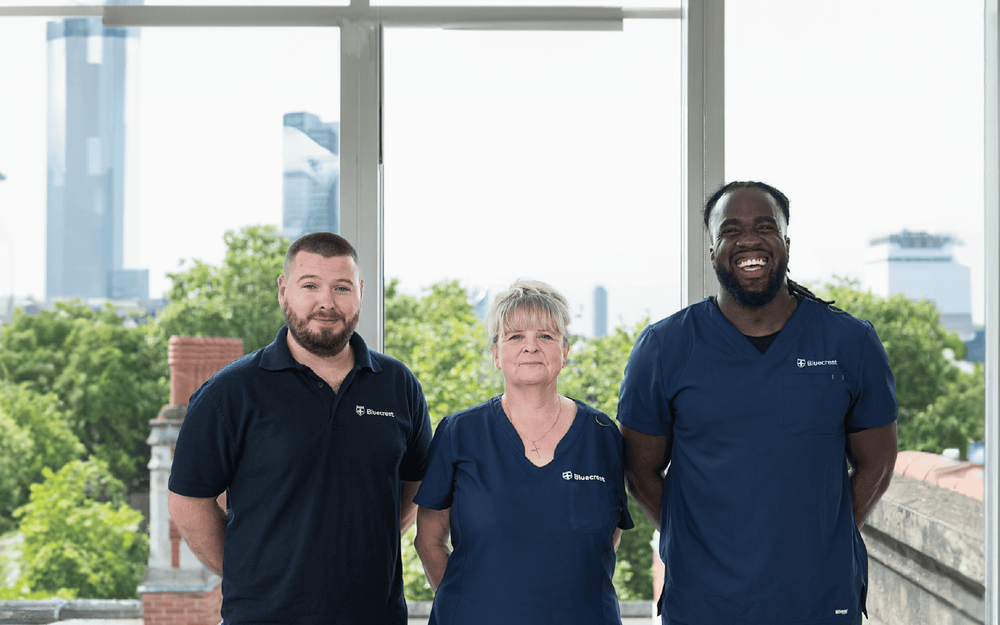
Health assessment guide: What to expect
We are thrilled that you have booked, or are considering to book, a Bluecrest health assessment and we look forward to welcoming you. We know that for some it can cause some feelings of anxiety around not knowing what to expect, so this guide will hopefully provide you with some clarity on what you can expect from your health assessment as well as allowing you to come prepared.
If you feel that you need additional assistance or time at your health assessment please discuss this at the time of booking.
When you arrive at the venue, reception will direct you to the waiting room. The waiting room isn’t supervised so the health assessment specialist will come and collect you when they are ready.
Key things to note
Your health
It is important that you attend your health assessment well. If you have experienced diarrhoea and vomiting, please wait for at least 48 hours after symptoms have resolved to preserve the safety of our staff and other customers.
If you are taking antibiotics for a new illness and feeling unwell, please rearrange your appointment as infections can alter the results of some tests. To ensure we provide the most accurate blood results we advise you to stop taking vitamins and supplements for at least 3 days ahead of your health assessment.
Our general advice is to avoid drinking large amounts of alcohol the day before and on the day of the health assessment.
Who carries out the assessment?
Our friendly Health Assessment Specialists (HAS) are fully trained in Phlebotomy (blood-taking), and will take some key measurements and a couple of small blood samples during your appointment.
Our team have varying backgrounds in the health and wellbeing but are not medically trained and will not be able to give advice on any health concerns you may have. If you are not feeling well or experiencing a health issue, we advise you to see a health care professional such as your GP or pharmacist.
What should I wear?
You will not be asked to undress at the assessment, but will be required to take shoes and socks off for the biometric analysis. We recommend you wear comfortable loose clothes so that sleeves and legs of clothes can be rolled up as the health assessment specialist will need easy access to your arms and lower legs for some of the tests such as blood pressure and PAD test.
What happens in a health assessment?
We undertake several tests in all our packages, these are the common non-invasive tests that we will carry out.
Height
During the assessment we will take your height using a stadiometer. We will ask you to remove your shoes so that we get an accurate result. You will be asked to stand up straight with your back against the measure.
Biometric analysis
This test is designed to look at body composition and combines height and weight, alongside 11 other compliments such as muscle mass, visceral fat and total body water. The test involves standing bare foot on scales and the foot sensor pads send a low, safe electrical signal through the body. The results will be loaded into our software and sent for analysis. The test relies on customers being able to weight bear on both legs.
Electrocardiogram (ECG)
The ECG looks at the electrical conduction through your heart and looks as well as rate and rhythm. You will be asked to lay on the bed and stickers will be placed on each wrist and lower leg. You will be asked to keep still whilst the machine records the traces. These traces go to our specialist laboratory for analysis and reporting.
Peripheral arterial disease (PAD test)
The PAD test looks at identifying peripheral arterial disease which is the build-up of fatty deposits inside your arteries. The test is offered to customers aged 40-79 years this is due to the test not being recommended for individuals outside of this age range due to the risk of false positive results.
You will be asked to lay on the bed and a blood pressure cuff will be placed on your lower leg and also your upper arm. Please tell the health assessment HAS if you have a limb that is painful or experience varicose veins as we will try to use the limb on the other side of your body. The machines will inflate the cuff tightly around your limbs, this can feel uncomfortable.
At any point during the PAD test, you can advise your health assessment specialist to stop the test.
Phlebotomy
As part of the assessment, bloods will be taken for analysis. The health assessment specialist will apply a tourniquet (tight band) around your arm to look at the veins on each of your arms and select the side whereby the veins are most prominent and accessible.
It is very important that you come to the assessment hydrated as this will increase your chance of having a successful blood draw. Please drink several glasses of water the evening before the test and several glasses of water before the test.
The health assessment specialist will do their best to take the blood draw as gently as possible, however you may feel some discomfort with the insertion of the needle.
After the bloods, pressure will be applied with some cotton wool, this is to stop the bleeding and minimise bruising.
It is common after having a blood test for there to be some bruising and pain around the site for a few days.
There are occasions when a blood draw is unsuccessful, this may be due to not being hydrated or that you have small and difficult to access veins.
The health assessment specialist will try a maximum of three times, if you do not want the health assessment specialist to have three attempts, ask them to stop, and you will be offered a reassessment.
Muscle strength hand dynamometry
This test involves squeezing as hard as you can a portable device that measures your muscle strength. It may cause some discomfort in customers who may have joint problems or experience muscle or bone pain.
Lung function test
A lung function assessment is a simple test whereby you hold a handheld device and blow as forcefully as you can into the measurement device. You will be asked to do this at least three times. Some customers may find this makes them feel lightheaded. If this is the case, stop the test immediately and sit on a chair until the light headiness has resolved.
The fitness test
The fit test involves stepping on and off a raised step for three minutes. The health assessment specialist will take a reading if your heart rate and oxygen saturation level using a simple clip-on device on your finger. During the test you will be asked at 1-minute intervals to rate your perceived exertion levels on a scale of 0-10.
You must wear sensible footwear – trainers or walking shoes. You will not be able to complete the test if you do not have safe footwear. It is also important that you only proceed with the test if you feel that you have the balance and coordination to use the step. If during the test you feel uncomfortable or have worries about continuing, please stop and inform the health assessment specialist. The test is not advisable for those customers experiencing chest pain on exercise.
Additional samples
During the health assessment you will not be required to produce any additional samples. Any urine, stool and HPV (cervical cancer test) kits will be given to you to take and collect at home.
Want to find out insights about your health? Book your health assessment today!
To book your health assessment, click here
For Vitality customers, book here.
For Benenden customers, book here.
Need help? You can reach out to our corporate team on 0808 168 9219
